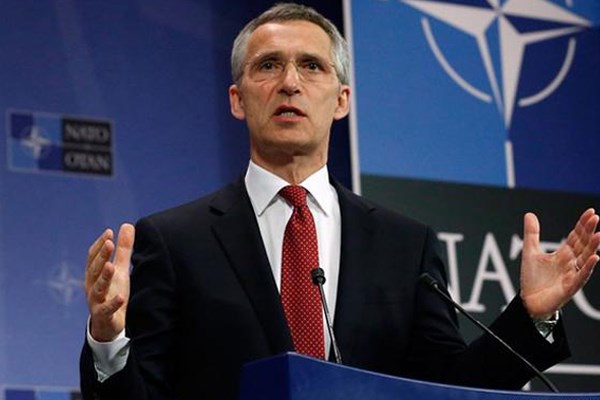NATO Secretary General speaks about threat of war after talks with Russia fail
The second round of negotiations on Russia's security guarantees, which took place on Wednesday in Brussels at the level of the Russia-NATO Council, predictably brought no results.
NATO rejected Russia’s demands for non-expansion to the east, cancelling the decision to accept Georgia and Ukraine into the Alliance and NATO’S withdrawal to its 1997 borders.
"Only Ukraine and 30 allies (NATO member countries) can decide when Ukraine can become a member of NATO. No one else. And of course, Russia has no veto power," NATO Secretary General Jens Stoltenberg said at a press conference after the 4-hour meeting.
He stated that although the very fact of negotiations is a "positive sign", "significant disagreements" remain, and in addition, there remains a "real risk of a new armed conflict in Europe."
Russia, according to Stoltenberg, will have to face "dire consequences" if it uses military force against Ukraine. And although the guarantees of collective security do not apply to Kyiv (in other words, NATO will not fight for Ukraine), the alliance will strengthen its presence in the territory of the eastern allies, in the event of escalation, Stoltenberg said.
The head of the American delegation, United States Deputy Secretary of State Wendy Sherman stated that Russia did not bring anything new to the council with NATO compared to what it had already stated at the talks in Geneva two days ago.
"We told the Russians: some things that you put on the table are absolutely unacceptable to us. We are not going to agree that NATO does not expand further. We're not going to agree to go back to 1997. We will not allow anyone to slam closed NATO’s open-door policy, which has always been central to the NATO alliance," Sherman said.
"Today, we have once again told Russia that invading Ukraine will have significant costs and consequences that will go far beyond what they faced in 2014," she continued.
According to Sherman, the sanctions package has already been coordinated with U.S. allies and will target the Russian economy and financial system. "Russia's actions caused this crisis, and it is Russia that must reduce tensions and give diplomacy a chance to succeed. We remain ready to continue our engagement with Russia," Sherman said.
After the talks, the Russian delegation were in deep thoughts. For almost two hours, neither the Russian Foreign Ministry nor the Ministry of Defense uttered a word. While Stoltenberg and Sherman had already finished communicating with the media, Russian Deputy Foreign Minister Alexander Grushko did not appear at the planned press conference, EurActiv reports.
The first to break the silence was the Russian Defense Ministry of Defense. Russian Deputy Defense Minister Alexander Fomin stated that NATO "ignored" Russia's proposals for de-escalation.
Grushko, who appeared to reporters two and a half hours after the talks ended, said that the process of expanding the alliance creates "unacceptable risks" for Russia and added that Moscow intends to "confront them", including using military means.
"If NATO switches to a policy of deterrence, then there will be a policy of counter-deterrence on our part. If it's intimidation, then it's going to be counter-intimidation. If it is a search for some vulnerabilities in the defense system of the Russian Federation, then it will be a search for vulnerabilities in NATO. This is not our choice, but there will be no other way if we do not manage to reverse the current very dangerous course of events," Grushko said.
The United States and NATO, according to the Russian Deputy Foreign Minister, are returning to the schemes of 1949, putting the deterrence of Russia at the forefront and seeking to achieve superiority in all areas and in all possible theaters of military operations. And during military exercises, they practice the use of nuclear weapons, which "also causes the most serious concern."
The Russian delegation, according to Grushko, "managed to convey to the members of the alliance that the situation is becoming intolerable." "Today, many have realized that this story will come to an end sooner or later, and it may look different," he said.
However, it was not possible to reach specific agreements - at least to continue negotiations. Fundamental differences in the vision of European security did not allow to make a decision on the algorithm of further actions at the meeting with NATO, Grushko concluded.
